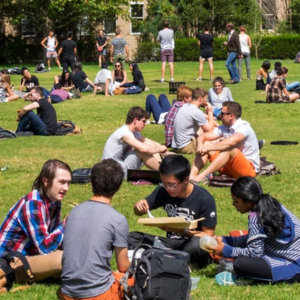Academic stress can be a common experience for international students, who may face additional pressures related to language barriers, cultural differences, or financial constraints. Here are our top tips for managing academic stress as an international student:
- Plan your time: Plan your time effectively by creating a study schedule, setting realistic goals, and prioritizing your tasks based on their importance and urgency.
- Take breaks: Take regular breaks from studying to rest, exercise, or engage in hobbies or social activities that can help you recharge and refocus.
- Seek support: Seek support from academic advisors, counselors, or mentors who can provide guidance, resources, or referrals to other professionals.
- Build resilience: Build resilience by developing coping skills, such as mindfulness, positive self-talk, or problem-solving, that can help you manage stress and overcome challenges.
- Take care of your health: Take care of your physical and mental health by getting enough sleep, eating a balanced diet, and seeking medical care or therapy if needed.
- Connect with peers: Connect with other international students or locals who may share your academic experiences or challenges, and provide a supportive and understanding network.
- Embrace the learning process: Embrace the learning process as a journey of growth and development, and focus on the progress you are making rather than the outcomes or grades.
- Ask for help: Ask for help when you need it, whether it’s from your professors, classmates, or support services, and don’t be afraid to acknowledge your limitations or struggles.
- Stay motivated: Stay motivated by setting personal goals, finding meaning and purpose in your academic pursuits, and celebrating your achievements along the way.
- Practice self-care: Practice self-care by engaging in activities that promote relaxation, joy, or creativity, and that can help you maintain a positive and balanced lifestyle.
In summary, academic stress is a common experience for international students, but there are many strategies that can help you manage it effectively. By planning your time, taking breaks, seeking support, building resilience, taking care of your health, connecting with peers, embracing the learning process, asking for help, staying motivated, and practicing self-care, you can reduce your stress levels and achieve academic success. Remember to prioritize your well-being and seek help when you need it, and don’t forget to celebrate your accomplishments along the way.



